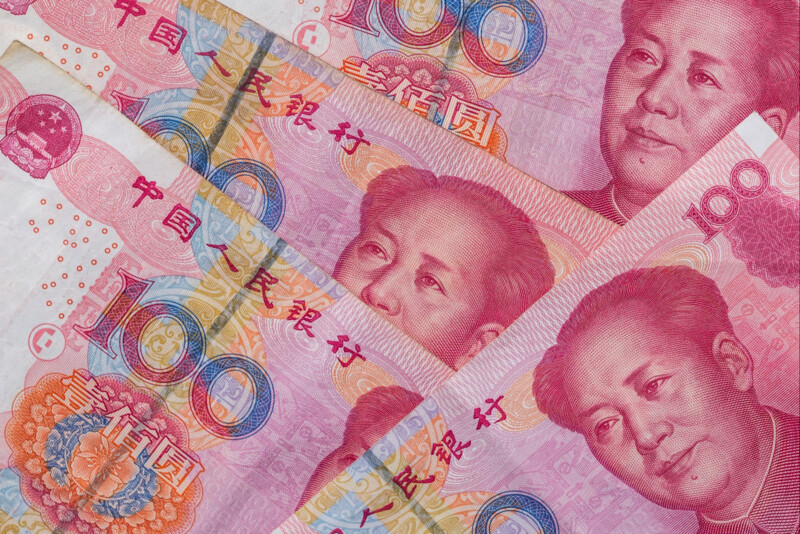Alors que 44 villes chinoises sont actuellement confinées partiellement ou totalement en raison de la mise en place d’une politique « zéro Covid », la possibilité d’une extension de ce confinement inquiète les marchés. Ceux-ci craignent que le yuan plonge durablement, comme ce fut le cas en 2015 et en 2018.
Le yuan perd 2,8 % contre le dollar
Alors qu’à travers le monde, la tendance est désormais à la cohabitation avec le virus, la Chine poursuit sa politique « zéro Covid » et confine de nombreuses villes pour tenter d’endiguer la reprise épidémique.
44 villes, dans lesquelles vivent en tout environ 350 millions de personnes, soit le quart de la population du pays, sont actuellement confinées de façon plus ou moins stricte. À Shanghaï, dont le PIB est à lui seul supérieur à celui de l’Argentine, les usines tournent au ralenti, abritant parfois les ouvriers qui dorment sur place pour maintenir l’activité.
Les marchés des changes redoutent une extension du confinement dans les prochains mois, qui pourrait faire plonger de façon durable le yuan comme cela a déjà été le cas à deux reprises, en 2015 et en 2018.
En 2022, le yuan, ou renminbi, perd 2,8 % contre le dollar, mais parvient tout de même à gagner 3,2 % contre l’euro. La hausse des taux de la Fed, la banque centrale des États-Unis, va contribuer à affaiblir davantage le renminbi par rapport au dollar, ce qui va contraindre les autorités monétaires de la Chine à assouplir leur politique pour venir au secours de l’activité.
La compétitivité des exportations chinoises renforcée par la chute du yuan
En 2015, la chute du renminbi était due à la libéralisation du système financier chinois. Plus tard, en 2018, la chute de la devise chinoise était imputable à la guerre commerciale opposant la Chine aux États-Unis. Cette fois, c’est le variant Omicron qui est responsable de la plongée du renminbi.
De plus, alors que la dette chinoise, qui offrait un rendement intéressant, avait attiré en 2020 et 2021 de nombreux investisseurs étrangers, ces derniers cèdent désormais leurs titres chinois pour se tourner vers les obligations américaines, dont le rendement à 10 ans est supérieur à celui des obligations chinoises depuis le début de l’année.
Si la Banque populaire de Chine (PBoC) a pour habitude d’intervenir en cas de chute du yuan, ce n’est cette fois pas le cas, la dévaluation de la devise renforçant la compétitivité des exportations chinoises. Toutefois, la PBoC surveille avec attention l’évolution de la situation, pour éviter une plongée brutale du yuan qui ferait fuir les investisseurs étrangers.
Les autorités chinoises se sont fixé comme objectif une croissance de 5,5 % en 2022, alors que de son côté, le Fonds monétaire international a revu ses prévisions à la baisse, à 4,4 %. La PBoC attend vraisemblablement que le confinement soit levé pour prendre des mesures, qui ne seront pleinement efficaces qu’à cette condition.
